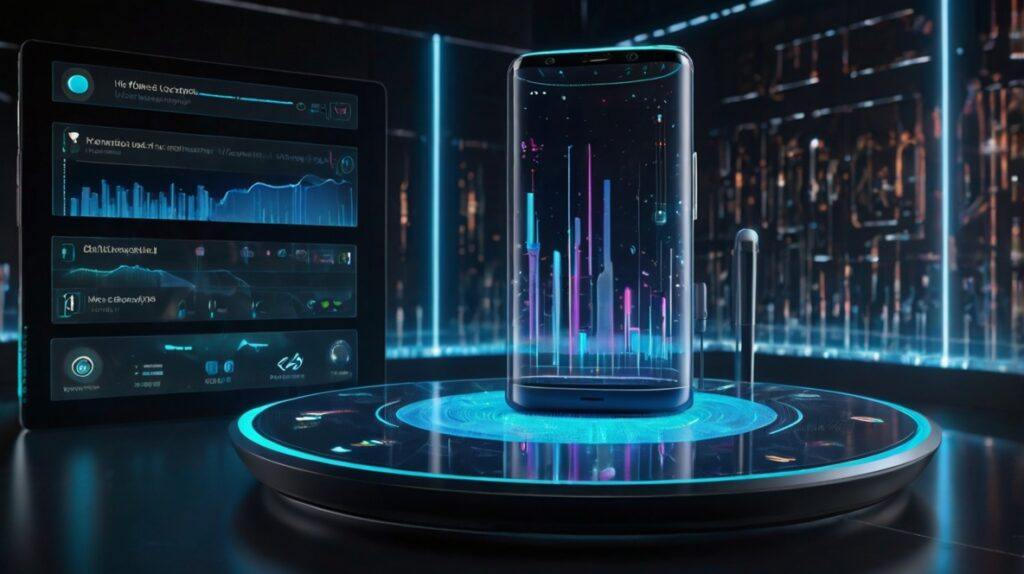
Voice Assistant Advancements in Android Smartphones: Your Essential 2025 Guide
The sound of your voice is becoming the ultimate command center for your Android smartphone. Far beyond simple queries, voice assistant advancements in Android smartphones are redefining how we interact with our devices, promising a future where seamless, intuitive communication reigns supreme. For tech enthusiasts, digital marketers, and everyday users alike, understanding these rapid changes is no longer a luxury but a necessity. The landscape of mobile technology is shifting dramatically, with AI-powered voice assistants at the forefront.
In 2025, the integration of advanced artificial intelligence (AI) and natural language processing (NLP) into Android’s voice assistants, primarily Google’s Gemini, is set to usher in an era of unprecedented capability and user experience. This comprehensive guide will explore the cutting-edge developments, what they mean for your daily life, and how you can leverage these innovations.
The Evolution of Voice Assistance: From Novelty to Necessity
Remember the early days of voice assistants? Often clunky, sometimes misunderstanding even basic commands, they were more of a novelty than a truly functional tool. Fast forward to 2025, and the narrative has completely changed. Driven by significant strides in real-time speech recognition and contextual understanding, voice assistants have achieved accuracy rates exceeding 90% (moldstud.com). This isn’t just an incremental improvement; it’s a fundamental shift that has made hands-free interaction a seamless part of our digital lives.
The sheer scale of voice assistant adoption underscores this evolution. By the end of 2024, approximately 8.4 billion voice-enabled devices are expected to be in use globally, outnumbering the world’s population (sevenatoms.com). In the US alone, over 153.5 million adults are projected to use voice assistants in 2025, a figure that continues to climb (sevenatoms.com). This widespread adoption is fueled by convenience, speed, and the growing ability of these assistants to understand and respond to complex, conversational queries.
The Rise of Gemini: Google’s AI Powerhouse for Android
A major catalyst for voice assistant advancements in Android smartphones in 2025 is Google’s strategic pivot from Google Assistant to Gemini. This transition, which began for mobile Android devices in March 2025 and extends to Google Home and Nest devices by October 2025, signifies a leap forward in AI-powered assistance (wespeakiot.com).
Gemini, powered by advanced models like Gemini 2.5 Pro and Flash, offers unparalleled contextual understanding and the ability to handle intricate requests. It can analyze the context of your interactions, propose personalized solutions, and adapt its tone and suggestions based on the situation, mimicking human-like conversation more closely than ever before (datastudios.org).
Key Advancements Shaping the Android Voice Assistant Landscape
Let’s delve into the specific advancements making Android voice assistants more powerful in 2025:
-
Superior Natural Language Processing (NLP) and Understanding: Modern voice assistants are no longer confined to basic commands. They can interpret complex queries, differentiate between various accents, and tailor responses based on individual preferences. This means more natural, fluid conversations, where the assistant remembers previous interactions and understands user intent over multiple exchanges (studiolabs.com). The ability to comprehend subtle cues, like sarcasm or humor, is also a developing area, expected to gain traction by 2025 (moldstud.com).
-
Real-time Speech Recognition and Reduced Latency: Significant strides have been made in reducing the delay between a spoken command and the assistant’s response. This real-time auditory recognition allows systems to interpret spoken language almost instantaneously, providing immediate feedback and making interactions feel more engaging and intuitive (moldstud.com).
-
Context-Aware Automation and Proactive Assistance: Gemini, for instance, is designed to automate frequent and repetitive operations and handle more complex, scheduled, and contextual actions—all by voice (datastudios.org). This means your Android phone’s voice assistant will become more proactive, offering suggestions and completing tasks based on your habits and current environment, without explicit prompting.
-
Seamless Cross-Platform Integration: The future of voice assistants is cross-platform. Android users will experience seamless continuity as they move between smartphones, smart speakers, wearables, cars, and other connected devices. The integration between smartphones, smartwatches, cars, and TVs will create a unified and interconnected digital environment, enhancing the overall user experience (studiolabs.com).
-
Multilingual Capabilities and Accent Recognition: Voice assistants are becoming increasingly adept at understanding different languages and accents, making them more accessible and useful to a global audience. This multilingual support is a growing trend, expanding the reach and utility of these technologies worldwide (firstignite.com).
-
Enhanced Multimodal Interaction: The integration of voice with visual cues is raising the quality of interaction. Users will have richer experiences by merging text, audio, and visual feedback, with projections indicating a 50% increase in applications utilizing multimodal interfaces by 2025 (moldstud.com).
-
Voice Biometrics for Security: As voice assistants handle more sensitive tasks, enhanced security features like voice biometrics are becoming more common, protecting user data and providing secure authentication (sphericalinsights.com).
Beyond Google: Other Players in the Android Voice Assistant Ecosystem
While Google’s Gemini is taking center stage, other voice assistants continue to innovate and cater to specific needs within the Android ecosystem:
-
Samsung Bixby: Once considered a challenger, Bixby has matured significantly. Users of Samsung phones like the Galaxy S series report Bixby being adept, responsive, and capable of opening and commanding apps compatible with Android Auto, such as navigation and music streaming apps (androidauthority.com).
-
Specialized AI Assistants: Beyond general-purpose assistants, a growing number of specialized AI assistant apps for Android are emerging. HealthOrbit AI, for example, is designed specifically for healthcare professionals, capturing SOAP Notes and clinical details via voice (healthorbit.ai). Others like Extreme Personal Assistant prioritize privacy by performing offline tasks, and AI Butler offers concierge-level assistance for scheduling and travel planning (calibraint.com).
The Impact on Your Daily Life
These advancements mean that your Android smartphone is transforming into a truly intelligent companion. Imagine:
- Effortless Multitasking: Asking your phone to read out a recipe while your hands are busy cooking, or sending a message while driving, becomes smoother and more reliable than ever.
- Personalized Experiences: Your assistant understands your preferences, anticipates your needs, and offers tailored suggestions for everything from music to local businesses.
- Smarter Home Integration: Controlling smart home devices, managing your schedule, and accessing information across your interconnected devices happens with natural voice commands.
- Enhanced Accessibility: For individuals with disabilities, voice assistants provide a powerful tool for navigating the digital world and performing everyday tasks.
Optimizing Your Digital Presence for the Voice-First Future
For businesses and content creators, the rise of voice assistants necessitates a strategic shift in SEO. Voice search queries are typically more conversational and question-based than traditional text searches. This means optimizing your content for long-tail keywords, natural language questions, and providing direct, concise answers.
Utilizing tools like Rank Math is crucial for voice search optimization. Features like the Speakable Schema in Rank Math PRO allow you to identify specific information for Google to read aloud in voice search results (rankmath.com). Additionally, implementing Schema markup for FAQs, reviews, and events enhances the likelihood of your content appearing in rich snippets and answer boxes, which are frequently used in voice search responses (rankmath.com).
Remember, voice search isn’t just a technological trend; it’s a paradigm shift in how users access information and interact with businesses. Adapting your SEO strategies to this voice-first world is no longer optional; it’s a necessity for maintaining visibility and engaging with your audience.
The Future is Conversational
As we move further into 2025 and beyond, the trajectory of voice assistant advancements in Android smartphones points towards even more intelligent, context-aware, and seamlessly integrated experiences. The goal is to make interactions with technology as natural and intuitive as human conversation.
For those looking to deepen their understanding of digital marketing and leverage these trends, consider exploring comprehensive online platforms. One such resource is Wealthy Affiliate, which offers training and tools for building and growing an online business in the ever-evolving digital landscape. (wealthyaffiliate.com)
Embrace these advancements, and your Android smartphone will truly become an extension of yourself, responding to your voice with unprecedented intelligence and efficiency.
For an enhanced audio experience on your Android device, consider investing in high-quality headphones like the Bose QuietComfort Headphones, renowned for their noise cancellation and immersive sound. To keep your device powered throughout the day, a reliable portable charger such as the Anker PowerCore Slim 10000 PD is an essential accessory for any Android user on the go.

